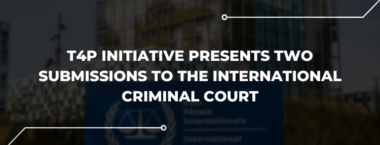
Torments, Torture Chambers, Executions: T4P Initiative Presents Two Submissions to the International Criminal Court
Information about extrajudicial executions of Ukrainians by the Russian military and Russian torture chambers in...
28 September 2023
27.12.2017
No conflict can be finally resolved without fair or compromise satisfaction of the interests of all parties. This is possible only in court because, during the conflict, some parties committed crimes that cannot be forgiven and, as a result, they cannot simply agree on a further peaceful existence. How should justice in Donbas operate in conditions of the armed aggression and after?
In 2017, the Ukrainian Helsinki Human Rights Union prepared a study about transitional justice during the armed conflict. Authors of the study recommend the Ukrainian authorities to launch four processes urgently, namely:
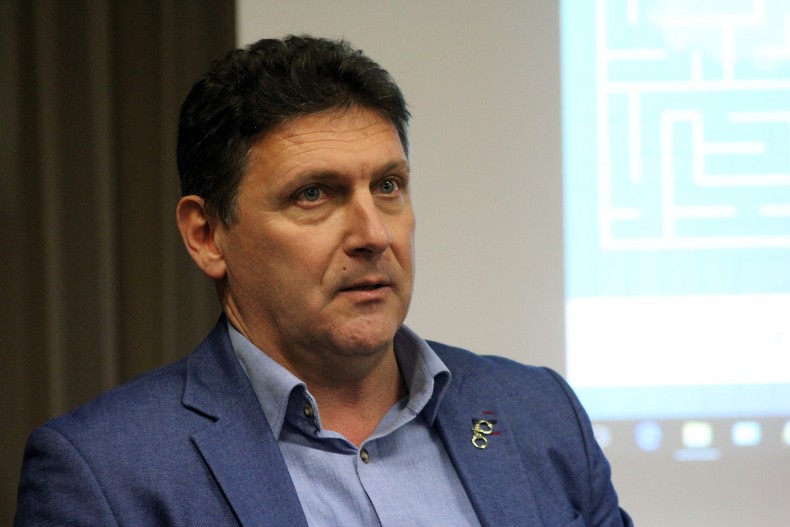
During the human rights NON-conference, held in Kiev in December, Oleh Martynenko, Head of the Analytical Department of the UHHRU, said that each country chooses which components to make emphasis on. “For example, South Africa focused on the truth commission, which had the right to grant amnesty to perpetrators of crimes of apartheid. If we apply it in our society, we can imagine a group of MPs, who decided to tell everything they know about crimes committed at the Maidan, but it is not enough,” he reminded. According to Oleh Martynenko, in the model of transitional justice, all four components should be interrelated. After crimes have been committed, all criminals should be punished. But this is also not enough: after the punishment of perpetrators, it is necessary to compensate all losses to their victims. In the end, this group of deputies should begin reforms that would not allow either the Ministry of the Interior or the National Guard to kill the civilian population during peaceful protests.
Konstiantyn Zadoia, Associate Professor of Criminal Law and Criminology of the Taras Shevchenko National University of Kyiv, noted that the prosecution of those responsible is one of the most important elements of transitional justice. But this is not always the case. “Ukraine has lost one chance to implement transitional justice in 1991 during the transition from communist rule to democracy. I do not know how effectively transitional justice could work during the previous regime of Yanukovych. The prospect of applying transitional justice for crimes that are currently occurring in Crimea and Donbas, but this is hampered by many obstacles,” said Konstiantyn Zadoia.
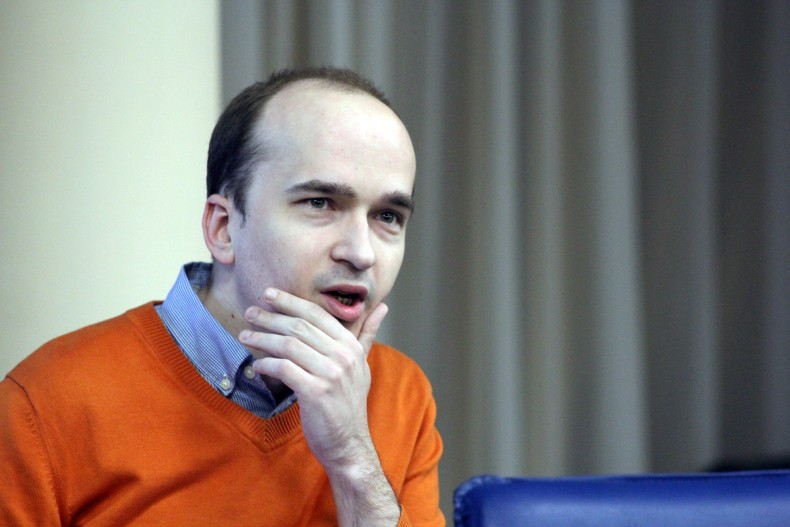
According to the expert, one of the problems is the imperfection of the criminal legislation of Ukraine. Article 438 of the Criminal Code of Ukraine provides prosecution for war crimes, but it does not specify what it is and refers to international humanitarian law. As a result, one who will apply Article 438 will not have a clear idea of whether there has been a violation of the laws and customs of the war.
Reparation goes badly in Ukraine. Money from the budget is provided for reimbursement solely for communal property. Victims are trying to get their compensations through the court, but even won in all three instances the decision cassation court launches in a circle – sends it for re-examination in the district court. Even if the amount for repairing the apartment after the fire in the ATO zone does not exceed 20 thousand hryvnias, it is still impossible to receive this money.
Ukrainian law enforcement officers are not ready to work in Donbas
Prof. Mykola Havroniuk, Ukrainian lawyer-criminologist, noted that justice is to be done by our Ukrainian authorities, but now they are almost not able to do this. According to the lawyer, the Military Prosecutor’s Office, established in 2015, is currently dealing mainly with corruption crimes. “They are not going to investigate those 1200 crimes for some reason, about which Ukraine was recently reminded by the International Criminal Court”, said Mykola Khavroniuk.
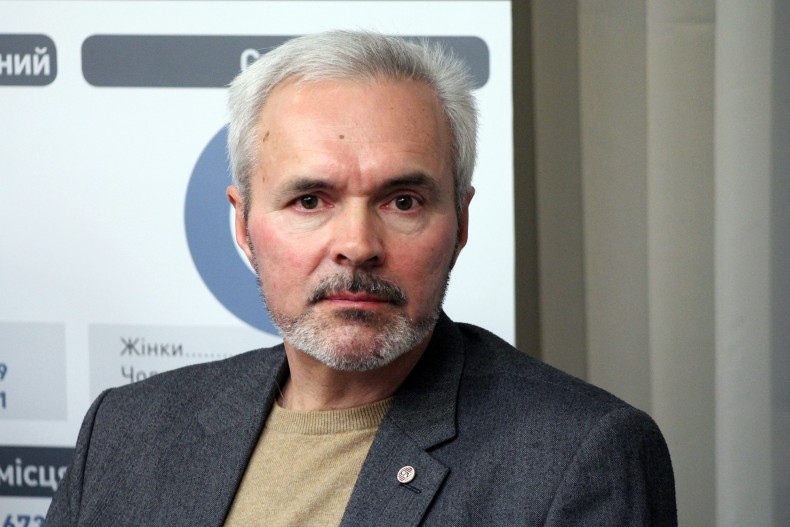
According to him, separatists and Russian troops who committed crimes in the ATO zone are subject to less serious penalties than Ukrainian soldiers. Even those who were at the checkpoints received conditional terms or fines. On December 15, a court in Luhansk Oblast sentenced an informer, who transferred to the militants of LPR the data on the deployment of the units of the Armed Forces of Ukraine, to 4 years and 5 months in prison. This crime could have caused the death of many Ukrainian soldiers, so the punishment is unjustifiably mild.
According to Mykola Khavroniuk, the number of convicted Ukrainian servicemen for war crimes in 2015 was 2500. The number of those whose crimes were related to separatism, terrorism and other activities of DPR/LPR, is only 210. The difference is almost 12 times. The lawyer believes that for a more objective investigation and legal proceeding, the case involving servicemen should be transferred to other regions of Ukraine. “Judges who are currently working in Donbas are partly intimidated, partly blackmailed. They deliver decisions of milder sentences, because of fears for their lives and the fate of their loved ones. This cannot be called independent and objective justice,” said Mykola Havroniuk. Oleksandr Pavlichenko, Executive Director of the Ukrainian Helsinki Human Rights Union, spoke about one successful case of such a transfer when the case was transferred from Kramatorsk to Kyiv, and then the proceedings was considered properly. Then the Kharkiv Human Rights Protection Group supported the case of a driver, who fell into the accident. In the battalion of the National Guard Unit named after General Kulchytskyi, 12 dead were killed as a result of this accident, 21 fighters were wounded.
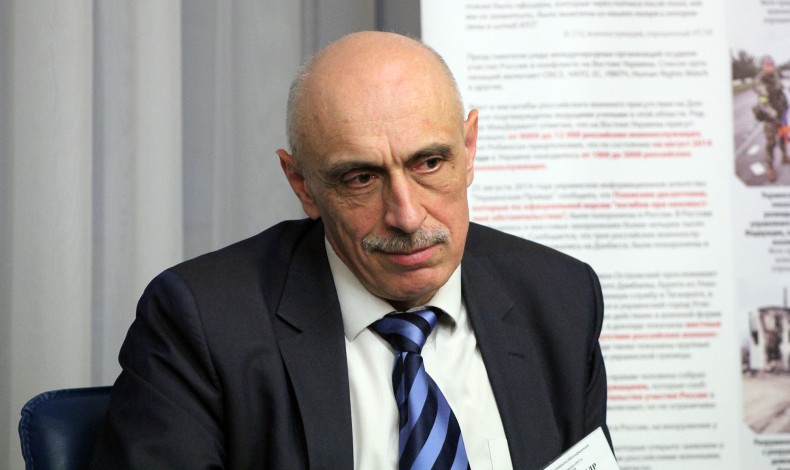
Mykola Havroniuk says that the number of courts and judges in Donbas during the ATO has significantly decreased, while the remaining ones are exposed to their relatives from uncontrolled territories. This has a very negative effect on the quality of justice. “Their decisions became much less fair than in another territory of Ukraine. After de-occupation, Ukraine will need filtration measures, and a huge number of investigators to investigate crimes committed on this territory”, reminds Mykola Khavroniuk.
Oleksandr Pavlichenko, Executive Director of the Ukrainian Helsinki Human Rights Union, spoke about cases of pressure on a court in Donetsk and Luhansk Oblasts when courtrooms were occupied by the representatives of volunteer battalions. “They demanded that judges deliver a judgement. There were even cases, when pressure from the court involved local authorities. According to the order, the heating was switched off in the courtroom, removed by his protection. In addition, judges declare a conflict of interest when they have a relative or some other person dependent on them in an uncontrolled area,” said Oleksandr Pavlichenko. This leads to a large number of pending cases. After all, there are cases that should be considered only by three judges, and if at least one judge declares a conflict of interests, then this case cannot be transferred anymore.
Oleksandr Pavlichenko added that one of the weirdest ways to summon a person to a court from an uncontrolled territory is to publish an announcement in the Uriadovyi Kurier newspaper, because that’s what the law says. Since there is a need to publish a lot of such announcements, there are significant expenditures, and efficiency is almost zero since it is unlikely that someone on the territory of the separate regions of Donetsk and Luhansk Oblasts signed and read this newspaper. “The access of citizens who are in the gray zone of the ATO to the legal process is complicated. Courts are going to inform process participants about certain events by SMS. Of course, the one, who is not interested in the decision, will not show up in a court,” says Oleksandr Palichenko.
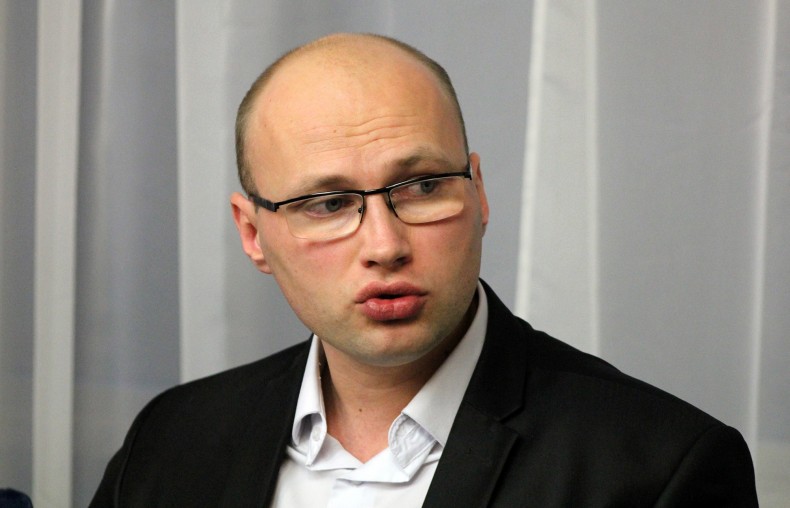
Valerii Novikov, a representative of the Luhansk Regional Human Rights Center “Alternative”, told about how his organization monitored court hearings in Donetsk and Luhansk Oblasts. In the course of this study, it became clear that residents of uncontrolled areas of Donbas have serious problems with the access to justice in controlled territories. The first problem with the notification of residents of uncontrolled territories about the time and place of the litigation, because the post offices do not work beyond the demarcation line. The second problem with the complexity of the process of crossing the line: when the litigation does not occur, and is rescheduled to another date, it is very difficult for people to come again and again. The third problem with the departure of judges to the place to control the availability of property, if, for example, the inheritance.
The even worse situation has occurred in uncontrolled territories. “Only criminal cases are considered in my hometown Alchevsk. Civil cases are considered in Donetsk, but according to the laws of DPR. Therefore, citizens do not have any other way out, but to leave the controlled territory. But it’s almost impossible to enforce the decision of the Ukrainian courts on the uncontrolled territory, because the executive service cannot get there,” said Valerii Novikov.
Yurii Bielousov, Human Rights Defender and Chairman of the Board of “Expert Center for Human Rights”, conducted four focus groups with lawyers, human rights defenders, investigators, prosecutors and judges working in Donetsk and Luhansk Oblasts. As a result, he found out that there is not enough judges and employees of the court apparatus. All this leads to a significant slowdown in processes.
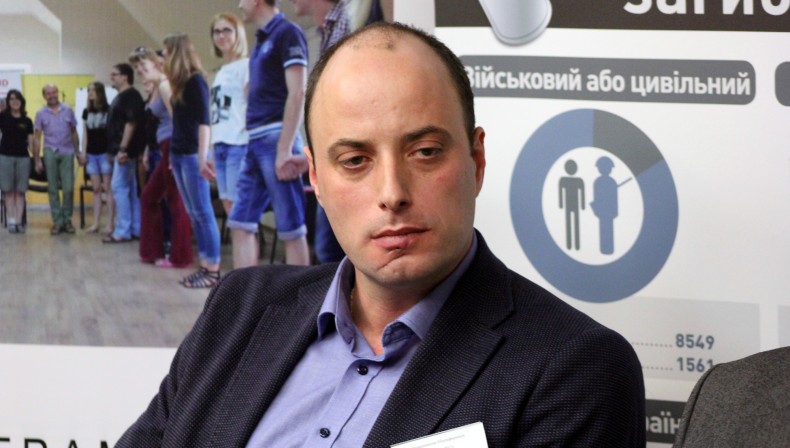
Another problem is that the courts are overloaded by administrative protocols drawn up by Ukrainians who cannot wait long in queues on the demarcation line, and through checkpoints of militants enter the uncontrolled border section and the Russian Federation. Another very serious problem: people who want to avoid criminal responsibility are hiding in the uncontrolled territory. “Law enforcers report that such cases are massive and they do not know how to deal with them,” Yurii Bielousov said.
Oleksandr Pavlichenko is very concerned about the legal consequences of the existence of a law enforcement system in the uncontrolled territory, which is currently sentencing under “the name of the DPR/LPR”. “If Ukraine return the control over these territories and it turns out that a defendant is sitting in prison for murder or rape, what should happen in this case?” he asks.
The situation is such that transitional justice already works in Ukraine. Our law enforcement system simply cannot avoid problems that it is not ready to solve yet. We can only hope that legislators will listen to the advice of human rights defenders- lawyers and improve the criminal code in time. If Ukrainians cannot yet receive reparation for damage caused by a military conflict, then it’s quite realistic to punish the perpetrators and prevent such crimes in the future.
Prepared by Oleh Shynkarenko (UHHRU)
If you find an error on our site, please select the incorrect text and press ctrl-enter.

Information about extrajudicial executions of Ukrainians by the Russian military and Russian torture chambers in...
28 September 2023
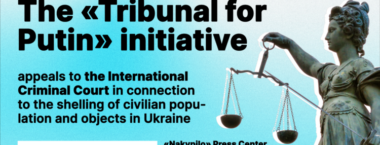
Since the onset of the full-scale invasion, the «Tribunal for Putin» initiative has recorded about...
18 August 2023
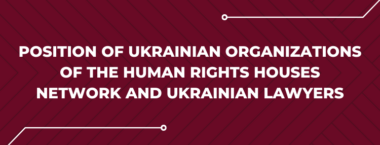
Position of Ukrainian organizations of the Human Rights Houses Network and Ukrainian lawyers on the...
17 July 2023

On June 6, 2023, the Southern Area Military Court of Rostov-na-Donu sentenced Mr.Bohdan Ziza, a...
08 June 2023